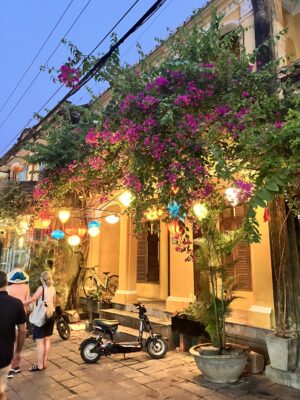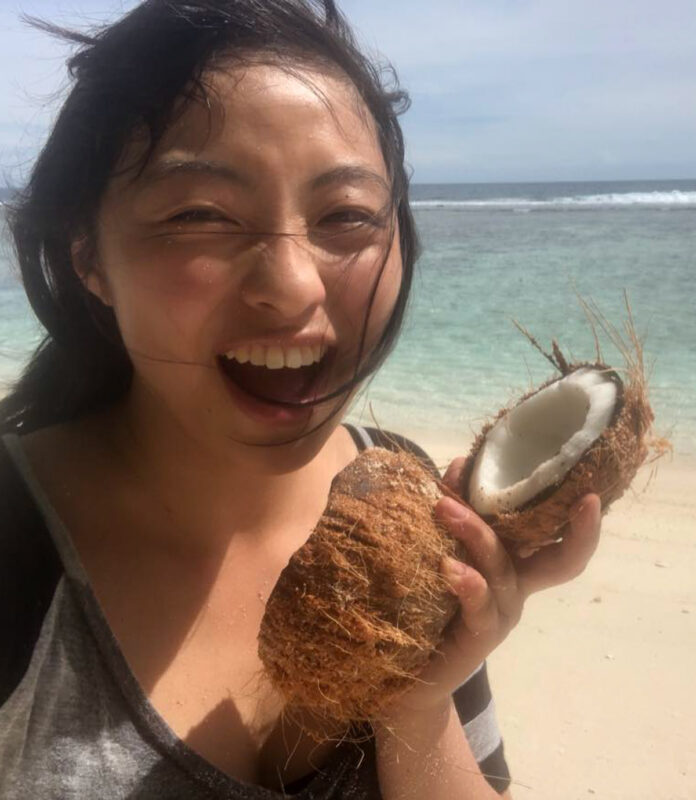
Castaways
Could you survive alone on a deserted island?
Alternative spring break? Fending for yourself in complete isolation is the latest experience in extreme-adventure tourism
Do you want to: 1. Get away from it all; 2. Maybe with no shelter; 3. Definitely not with other humans?
Would you prefer to never, ever dress for dinner—and perhaps wear no clothing at all? Do you like the idea of a vacation where the words “remote and inhospitable” are actually part of the sales pitch? Then do we have the holiday for you!
Docastaway is possibly the only company in the world that recreates the experience of being a castaway; its motto is “Just You Alone.” Since its inception in 2010, about 1,500 people have been clients, sometimes traveling as couples but the vast majority—about 95 percent—going alone. Getting to the islands the company rents in locales around the world involves planes, ships and speedboats. Costs run anywhere from $1,600 to $6,500 a week. They will get you there—and then they will leave you. (Flights from the US to the country’s capital are not included.)
There are safety precautions in place—walkie-talkies, satellite communication, and sometimes a team standing by on the nearest island. But the company doesn’t advertise exact locations because they want to keep the islands as unpolluted as possible . . . and avoid guest run-ins with pirates.
Docastaway has been around for 14 years and, as daunting as a visit may be to the comfort-craving among us, a week or two on an island with exquisite beauty and little else has proven a popular adventure among those who have every creature comfort imaginable—but perhaps a bit of ennui from it all. One writer described the Robinson Crusoe experience in terms of additive vs. subtractive travel. Most of the time, you are sightseeing, shopping, visiting, having meals—adding to your life experience. This is the opposite: you are subtracting from your life, to get a sense of what really matters to you.
Ian Argus Stuart (64 when he stayed for three weeks) might agree. He is an investor and adventurer who enjoys any travel that has “a measure of calculated risk to it.” Stuart fished for food, crafted his own shelter, and admits he is very lucky, because mosquitos don’t like him. “I made my first million by the time I was 21,” he says. “Anything you could want to own, I’ve owned it. But I’m as happy here on the island—happier—than anywhere I’ve been.”
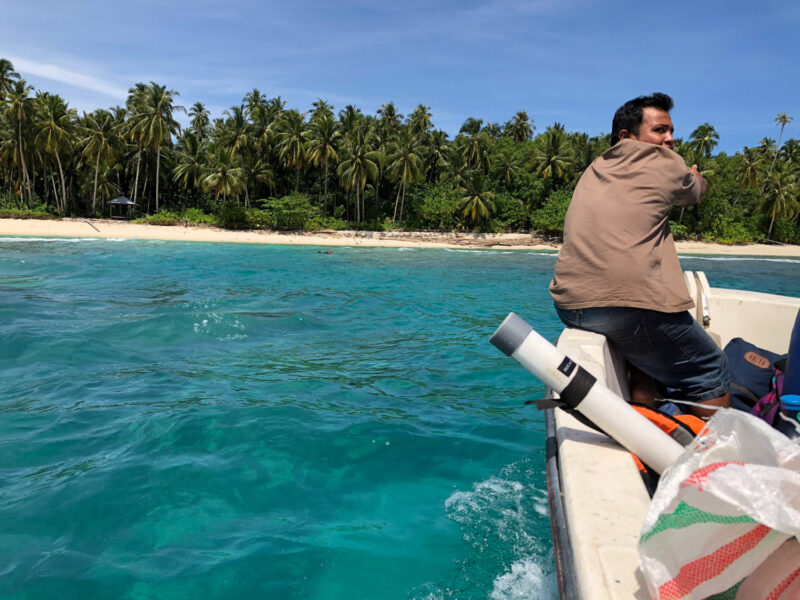

There are two modes of accommodation and isolation: Comfort and Survivor.
Comfort provides basic shelter and bathrooms—and sometimes a kitchen. There is no air conditioning, limited electricity, and the wire connection is, at the very best, iffy. There may be people at nearby islands who can cook and drop off meals, or there may be a barbecue and the chance to cook your own meat. (Meat you bring with you: they choose islands where there aren’t mammals for you to hunt—or be hunted.)
“There are older people, especially over 40, who don’t want to ‘survive anymore,’ they want comfort,” notes Alvardo Cerezo, managing director of Docastaway, who has been obsessed with castaways and pirates since he was a little kid. “Once he turned 18, Cerezo, who is from a wealthy family in Spain, began traveling to different islands around the world and staying, sometimes for months at a time. After university he realized he was probably not destined for life in an office. “I figured there must be other people like me, so I decided to start this business.”
For extreme adventures like Cerezo, there are islands he dubs “Survivor mode.” The question at the heart of these experiences: What would it be like to go from everything to nothing? And pay for the privilege?


Urara Takaseki, for one, wanted to find out. Today, at 27, Takaseki is a PhD candidate at the University of Tokyo in engineering and a young entrepreneur running a vending machine company. But in 2018, she was a college student, working four internships, running a non-profit, and dating a long-term boyfriend she was unsure about. “I never gave any time to myself,” she says. “I needed a fresh perspective, a place where norms didn’t exist.”
Nobody wanted her to go, but the boyfriend was especially resistant. “He cared about my safety, of course. But it was more than that. He just . . . wasn’t supportive at all.”
As a kid, Takaseki loved camping, loved the idea of escape. When she heard about Docastaway, she knew it was for her.
Takaseki brought nothing but her passport, tools to spark a fire, some paper for drawing. There was a machete already on the island, a pot. Some people bring food. Takaseki thought she could get fish—not realizing, until she caught and cooked them, the brilliant little creatures darting about the coral aren’t so very tasty. So she lived on coconuts, and actually gained a bit of weight “because coconuts are very fatty.”

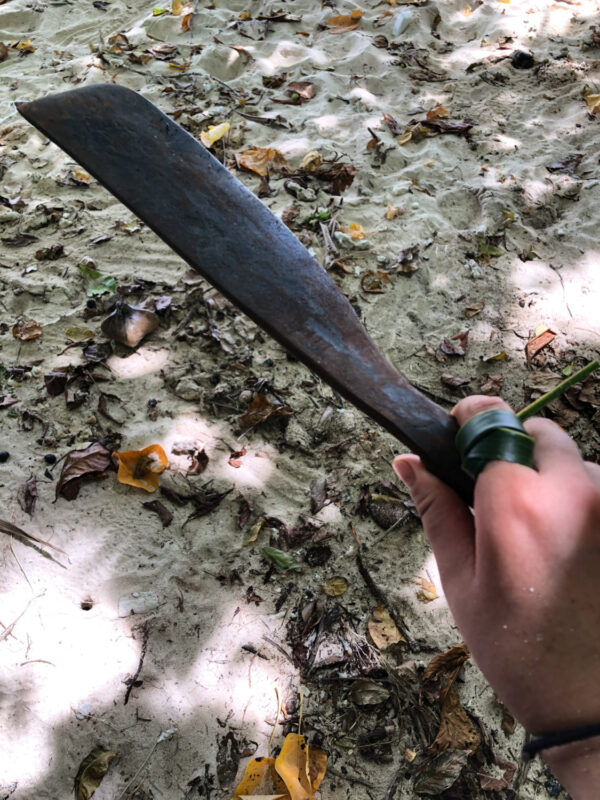

She took risks that, in hindsight, weren’t so bright. She slept in the crook of a tree, without building any kind of real shelter and didn’t take proper clothes (nights can be very cold) or protection from the evening rainstorms that drenched her. She ate random plants without knowing if they were edible. “But I figured I have quite a good immune system, and I was like, if I don’t make it back, well . . . I just want to see what this is like.”
Of course, Takaseki had the resilience of a 19-year-old.
But it is not ideal when you don’t bring sunscreen near the equator and turn on the light on your phone only at night to see the bugs are crawling all over you. And did we mention that she hadn’t thought about when she’d get her period, and thus learned to use coconut husks in lieu of sanitary napkins? “There was quite a bit I hadn’t thought through,” Takaseki admits.
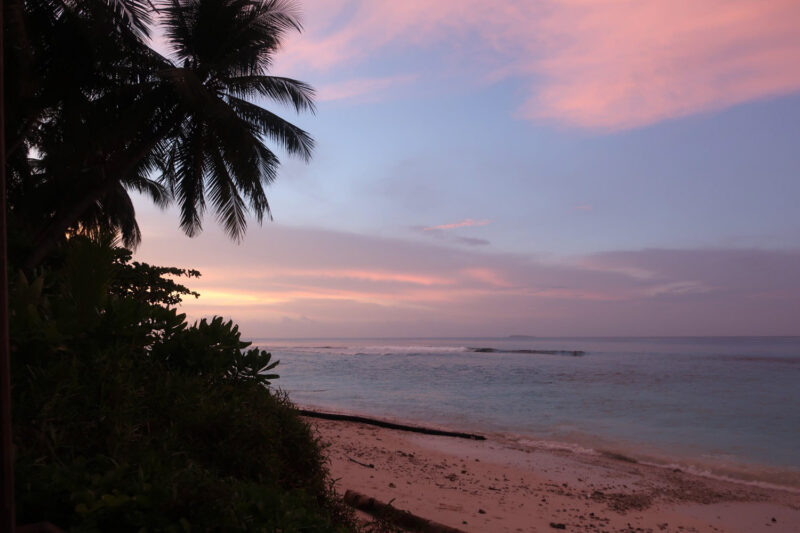
Yet she felt that week on the island was one of the most formative experiences of her life.
“You can’t believe how much you appreciate when you get back,” she says. “Water. A toilet. Lights.” If she did it again, she would bring more supplies. “But the nothingness was part of the experience.”
And that, ultimately, is what the desert island experience is about: gratitude. “We don’t realize how amazing it is to have light just by pushing a button or to have water just by opening the tap; to be covered from the rain when there is a nice house,” Cezero says. “And we are social animals. Being truly alone . . . it can make you appreciate human beings in a way you didn’t before.”
Spend a few days in extreme conditions, Takaseki adds, and you will inevitably question your priorities. When she got back, she broke up with her boyfriend. “I realized I wanted a person who supported me for who I was, but more than that, I wanted someone who—well, it didn’t matter how he looked on paper; it didn’t matter about his school, his family, his ambition,” she says.
There are vacationers who return to the islands. Takaseki is not (yet) one of them. If she does, there’ll be a bit more prep, she says . . . and perhaps a mate who shares her singular sense of joy.
Go to www.docastaway.com for a list of currently available islands and experiences.
Hero photo of Urara Takaseki courtesy of Urara Takaseki/Docastaway


